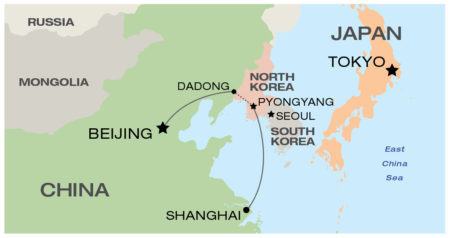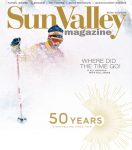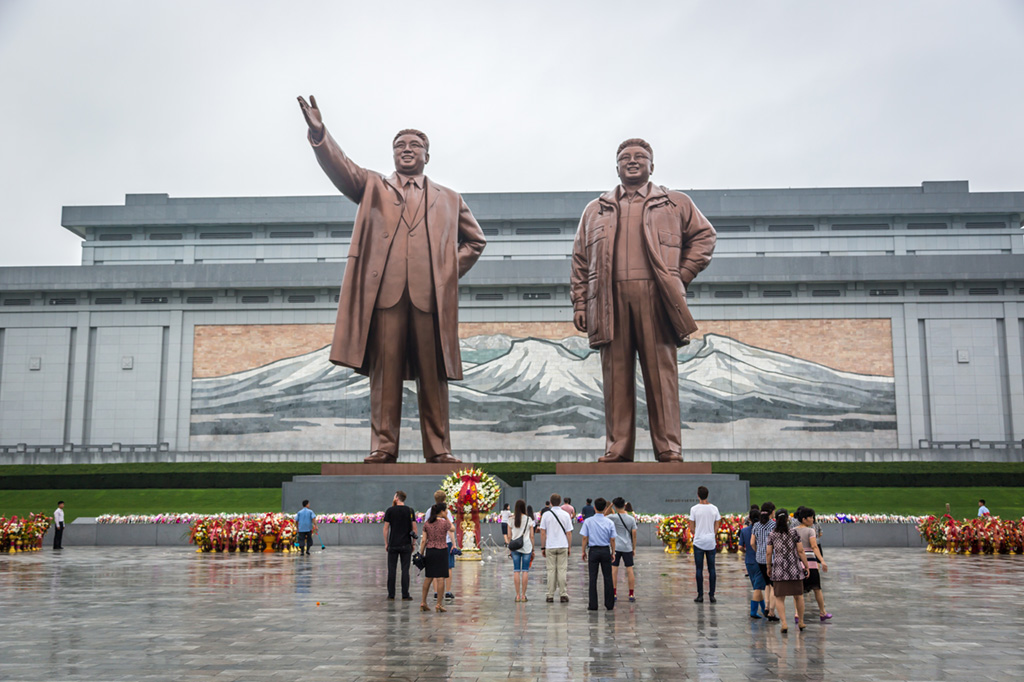Editor’s note: From a simply educational point of view, high school senior projects provide an opportunity for students to apply skills and knowledge they have acquired over four years to achieve a specific goal. Perhaps more important, though, is the fact that they often inspire students to pursue their true passions, some they may not have known they had before embarking on a senior project.
In a series of articles, we present excerpts from some outstanding projects of the 2017 graduating class.
High School: Community School
Project Title: North Korea Revealed: An Ethnographic and Political Study
Post-graduation Plans: U.C. Berkeley, Berkeley, Calif.
I began my senior project by engaging in research on several places that I had planned to visit while traveling in Beijing and in North Korea. While I grew up in China and had a good understanding of certain areas in China, I was not very familiar with Beijing, and I had never been to North Korea, so I wanted to learn as much as I could before I got on site and began to analyze life in these two Communist countries.
I flew to Beijing first, and I spent my time walking around and making observations of daily life. Since I grew up in China, I was basically incognito and was not looked upon with suspicion or as a tourist. I visited a few famous tourist sites and tried to get a sense of how Chinese people think about Communism and governments.
Most people have a pride in being Chinese; nationalism is strong. However, when I asked people about how they felt about Mao, different age groups had some different answers: People above 50 admire Mao very much and appreciate what he has done for the country; people between 35 and 49 have very complex feelings about the Communist government because they “are not sure if this is the best for China”; people under 35 also have very conflicted thoughts, but they do think the current government is the best for the country right now. From them, I learned that it is probably not about what kind of government a country has, but rather if the government is making the country better and stronger. From my observations and interviews in China, if the people in a country are happy and wealthy, they don’t really care about the form of government, at least, that is what I observed in China.
During my stay in Beijing, I had a formal interview with a Chinese student who was an exchange student in North Korea for six months. She shared her experiences living in North Korea, and what she understood about North Korean people and their government. The principal message that I got from her is that “people should look at North Korea from different perspectives. North Korea could be a good country according to some people. Western countries are dominating the world right now. That is why the whole world, including China, follows their opinions and think that North Korea is bad … We need to know more before we speak.”
Right after my trip to Beijing, I flew to Dandong, the border city between China and North Korea. My connection, Park, a Korean-Chinese, gave me a tour of some important sites, such as Mao’s statue, the still-broken bridge bombed by Americans, and a secret shelter for North Korean defectors. My “guide” also shared her family history and personal thoughts of being Korean-Chinese. Her family moved across the border back in the 1930s, and she has relatives in both North Korea and South Korea. Her family has provided help for her relatives escaping from North Korea before, and she always felt lucky to be born in China.

Map of Kelly Zhu’s journey
The second day, I joined a travel group of students and took the train from Dandong to Pyongyang. The train there took seven hours, including one-and-one-half hours of security check. Police got on the train to check out suitcases, bags, phones and any electronic devices. We arrived in Pyongyang that evening and visited the Kim Il-Sung Square. It was occupied by college students because they were rehearsing for the Day of the Sun (Kim Il-Sung’s birthday).
For the next few days, I “toured” North Korea, and I visited some places that are specifically designed for tourists, but I did manage to get some observations that were not censored. The most interesting place that I went was the border between South Korea and North Korea because there was another group from South Korea visiting as well. The border is very close to Seoul, only 20 minutes away. The last night in North Korea, I went for a walk with my group to a North Korean “black market” where local people sell and exchange things without the government permits. I tried to get some North Korean bills from them, but all the people seemed afraid to talk to us once they realized that we were foreigners.
The next day we flew from the only airport in Pyongyang to Shanghai. The airport was quite interesting because the only flights flying out were flights to China. Nowhere else. After coming back from North Korea, I did phone interviews with two North Korean defectors and encountered one of my biggest challenges during my whole project. Because of their North Korean accent, my translator couldn’t understand many of their words. Nonetheless, from them, I learned that they want people to focus more on their culture, their living situations and their human rights, rather than their army or government.
I concluded my trip with two important lessons. First, toppling Kim’s government is not a real solution to all the problems in North Korea. Radical changes are probably harmful for North Korea, since the North Koreans are not familiar with the outside (Western) world. Second, we need to look back and try and understand that North Korea and other developing countries will have very different perspectives from what we do about what is good for their country. Many things that Westerners assume are beneficial for a country may not actually help.
At the end of this project, I realized that I wasn’t observing the politics of two countries, China and North Korea; instead, I was observing people. Everyone has bias, and for me, the way that I was able to overcome my bias was to get out of my comfort zone and immerse myself in a different culture and take risks. This is important for all of us. It was important for me, and I learned to appreciate the fact that to understand Communism, I had to look at Communism from a different perspective. Here at the Community School, if we are going “from here … anywhere,” we need to remember that the view from this campus is only one view, and we need to acquire other perspectives by going out of our comfort zones. Then we can begin to understand the world and make a contribution.


